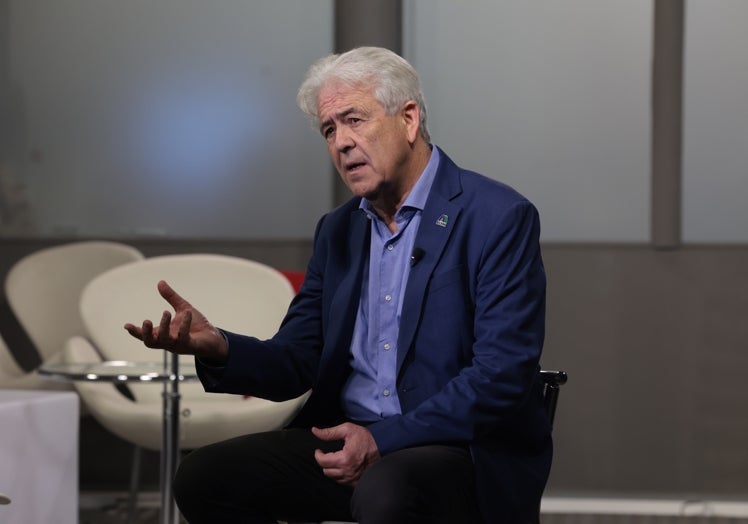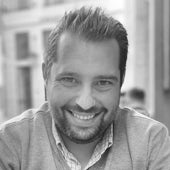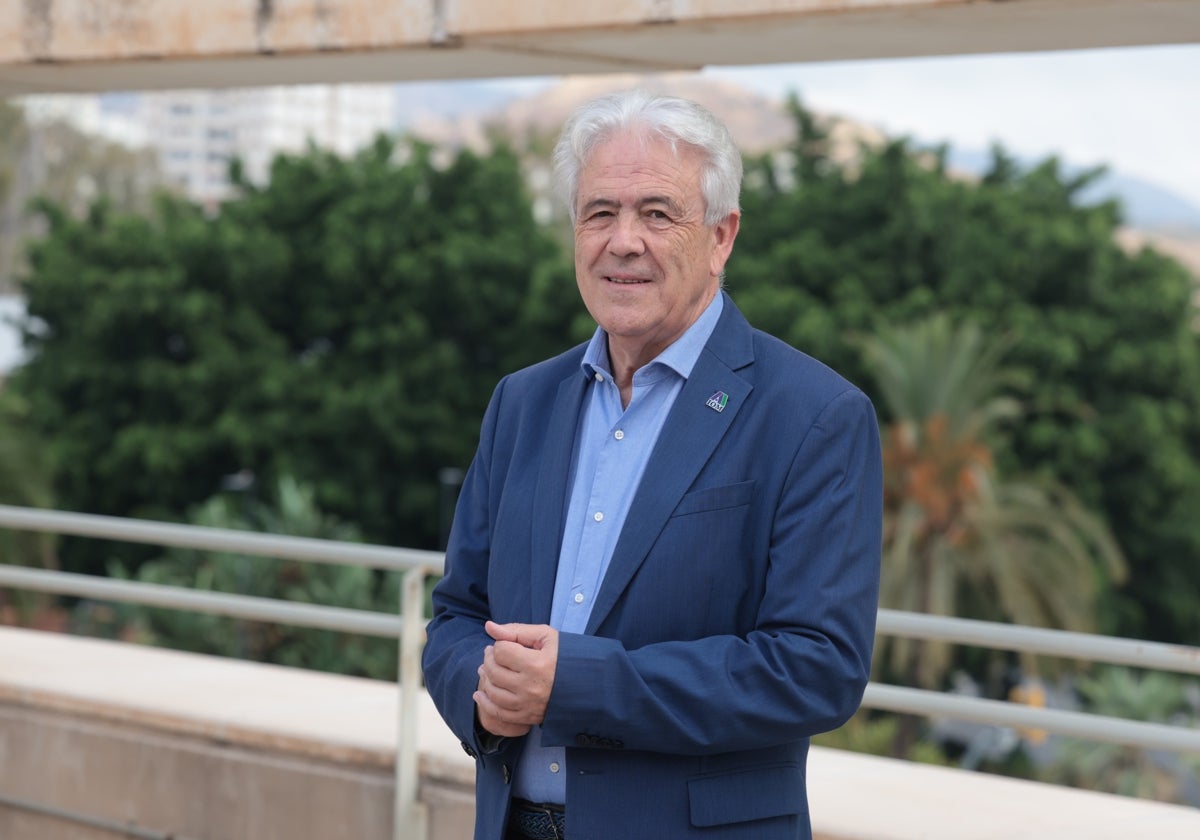Emilio Alba: 'Public-private collaboration can accelerate the early detection of cancer'
The professor of oncology at Malaga University reveals that the foundation wants to attract a high-performance group in the field of ageing and cancer
Emilio Alba is head of the oncology department at the Virgen de la Victoria University Hospital and professor of oncology at the University of Malaga. He is one of the region's great doctors and has made humanism, research and excellence three essential factors in helping patients at the hardest time of their lives.
For the last year, he has been the scientific director of the Centre for Research and Advanced Cancer Therapies Foundation (CITAC), a public-private organisation with enormous institutional and business support. The structure of the CITAC Foundation makes it possible to attract private funds to be applied to public research with the aim of achieving 70 per cent cancer survival by 2030. The aim is also to create a biocluster in Andalucía - uniting hospitals, research centres, the pharmacological industry and the diagnostics industry in an effort to promote high-impact oncology studies and rapidly transfer their results to the day-to-day lives of patients.
-Where does the foundation stand one year after its birth?
-The CITAC Foundation was established precisely one year ago, in July 2024, and from that date until now, basically two things have been done: a process of legal consolidation and building its administrative structure and external scientific committee with prestigious professionals. We already have a bioinformatics data unit and this year we would like to attract a group or a high-performance principal investigator to delve into the field of cancer and ageing.
-In Malaga, there seems to be full support, but the participation of the regional department of health would also be useful...
-There is full support in Malaga - it is a city project - we are enormously grateful to the mayor, Paco de la Torre, for his approach. The support can be seen in the foundation's trustees. The University of Malaga is fundamental, with its dean, Teo López, at the head. Malaga town hall, the provincial council and, at a private level, the Unicaja Foundation and the bank, which is the financial muscle. There is also Famadesa, the Sando Foundation, the Kareema Foundation, the Mecenas Casa Natal Foundation and the General Foundation of the UMA. This is a foundation that is interested in rapidly transferring research to the clinic, to the patients, the objective is immersed in the European Commission's goal of achieving a cancer survival rate of 70 per cent within five years, in 2030.
-Obviously, the Consejería de Salud would be very welcome to join a project of this type. We are in negotiations with them. These relationships are already in operation. If we look at Catalonia, the region of Spain where biomedical science has advanced the most and has a frankly obvious leadership role, we have the VHIO at the Vall d'Hebron Hospital, IrsiCaixa in infectious diseases, the Josep Carreras Foundation for leukemia research, and so on. These are public-private foundations that have helped a lot in the Catalan ecosystem to achieve this leading position. Here in Andalucía it is much less frequent, but we also have examples: the Ricardo Valle Institute, which is a public-private foundation, in which the Andalusian regional government, the University of Malaga and private companies are involved; similarly the Artificial Intelligence Centre of Granada, which belongs to the University of Granada. In other words, this model exists in other fields in Andalucía, and in fields that Andalucía leads at a national level, like ICTs (information and communication technology). The idea is that for biosanitary sciences we can build this city project and transform it into a regional project.
-Why haven't you participated so far?
-I suppose there are a number of circumstances that mean that when a structure of this kind is new, there is a certain caution in the approach to collaboration. It is a public-private institution, and it is true that most of the funds are private, but the governance is fundamentally public. The president of the board of trustees is the dean of the University of Malaga. What this type of structure does is to attract private funds in a much more agile way so that research is usually carried out in public institutions, such as public research centres or hospitals. I understand that this is a certain degree of prevention or prudence, but I also understand that this is the future. There we have structures or ecosystems such as Biocat in Catalonia, which has managed to create an ecosystem between universities, hospitals, research centres and industries - all of which are leaders in bio-health sciences, even at European level. I would like to think that in Andalucía we are capable of building something similar between all the institutions involved in cancer research.

-If you don't participate, what happens?
-Well, if you don't participate, you can still do things. You can do translational research, you can do a lot of data science research with companies, here we have Google, for example, which is a world leader in this. It even has groups like Verily doing research, or DeepMind, in life sciences. Obviously, the cruising speed is not the same. But it would be a strategic mistake in the medium term. A few days ago, the European Commission produced a document called How to Make Europe an Attractive Place for Life Sciences by 2030. A kind of strategic plan, taking advantage of what is happening in America, with these problems they have with the Trump administration and foreign researchers. The plan proposes the creation of bioclusters of hospitals, research centres, industries, public and private funds, to make research flourish in Europe. If you read the document, it seems obvious where this is going.
-Do they aim to create a hub of medical excellence in Malaga?
-Yes, it transcends being a pure research centre. We have an example here in Malaga, which is a success story: the Tech Park. Together with tourism the technology industry is one of the two great pillars on which modern Malaga is based. This Technology Park is based, fundamentally, on ICT, technologies related to information, computing, data, etc. And this is where Malaga is influential. We are doing well in biosanitary sciences, but this is a point when other institutions and research centres could get involved. Not only to create knowledge, but also to create wealth and to create a hub that attracts pharmaceutical and diagnostic companies to the city. Take Catalonia and Madrid, for example. These regions are acting as hubs for pharmaceutical and diagnostic companies, which are becoming very important in the diagnosis of genetic biomarkers, etc. We are being left out of the picture, despite the fact that we are the most populated region in this country. That is why Andalucía has great potential and Malaga has the means to try to do so.
"The most important risk factor for cancer is age, but age is not just a question of chronology. We have a biological age that is different, in many cases, from our chronological age"
-Early detection of cancer is one of the fundamental objectives of the centre. How is this going to be achieved?
-This comes from the hand of technology. Right now, mortality from cancer is seen in categories - there are tumours in which we have achieved a very high cure rate: breast cancer, prostate cancer, thyroid cancer; but there are other tumours in which the cure rate is lower, such as digestive tumours, liver cancer, bile duct cancer, pancreatic cancer or lung tumours, where we are slower. We are slower to detect these because patients usually have symptoms before testing. When the patient already has symptoms, in many cases the disease is already very advanced. We wanted to work on early cancer diagnosis, not only based on imaging tests, but also on genomic tests such as liquid biopsy. Our idea is to launch a large-scale liquid biopsy project to detect cancer much earlier than it is done now, so that the number of tumour cells is so small that treatments are more effective. We want to diagnose cancer much earlier and in a proactive way.
-Do ageing and cancer usually go hand in hand?
-Yes, ageing and cancer clearly go hand in hand. The most important risk factor for cancer is ageing. But age is not just a matter of chronology. We are used to the fact that our age is what's written on our identity card. This is not the case. Each of us has a biological age that is different, in many cases, from the chronological age on the ID card. And there are methods to identify them, called biological clocks, which tell you how old you are, more or less, not the age you think you are. This year our first objective is to attract a high-performance group in this field. Because while it is true that cancer is a disease of age, we are witnessing another phenomenon that is very curious, which is that certain digestive tumours, mainly colon carcinoma, are increasing very significantly in people under 50 years of age. The reasons for this are not entirely clear, but it seems to be diet-related. We have been able to demonstrate this even in our environment. We don't know whether it is because of something in their diet, or because their biological clocks are not where they should be.
"Colon carcinoma is rising significantly in people under 50"
-Can we talk about a cure or should we talk about chronification?
-Chronification at 25 years would be a cure, but it depends on the age of the patient. I think we are aiming for disease control, cure in some diseases and enough chronification so that it does not complicate patients' lives in others. Cancer is a very old thing, contrary to what many people think. In the dinosaurs and so on there was cancer. Something that existed even before humans is going to be very complex to completely eradicate. We have to be in line with the European Commission in the sense of at least trying to get 70 per cent of people to survive cancer.
-Are there any concrete examples of AI applications that are revolutionising practice?
-Artificial Intelligence is currently revolutionising the field of imaging. There are already programmes used for radiology and pathological analysis that predict the probability of a tumour being malignant. They do this quite effectively. We still have a step ahead, which is to apply it to large masses of data to find patterns that from a human, intuitive point of view, we are not able to find. In imaging, I think it is going to have a great application very quickly, especially in radiology and pathological anatomy, and in the other areas we have to develop it. There is great hope, but right now there are no concrete results. In Malaga we have an opportunity that is probably not available in many other places. We have a large number of people here who work in companies like Google, who are world leaders, right on our doorstep. I don't know how fast Artificial Intelligence will phase out, but we should take advantage of it while we can.
-Malaga can therefore become...
-A capital of artificial intelligence applied to medicine. Not a bad project.


Comentar es una ventaja exclusiva para registrados
¿Ya eres registrado?
Inicia sesiónNecesitas ser suscriptor para poder responder.
Necesitas ser suscriptor para poder votar.